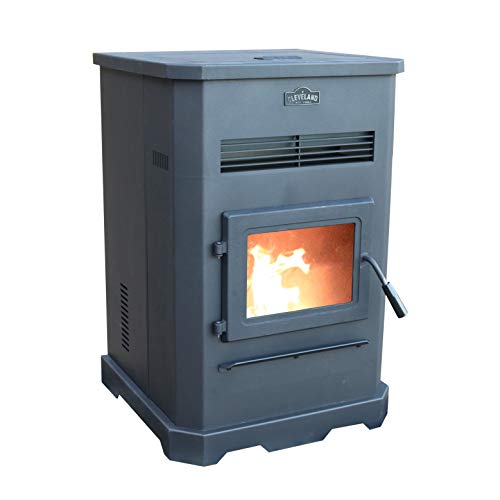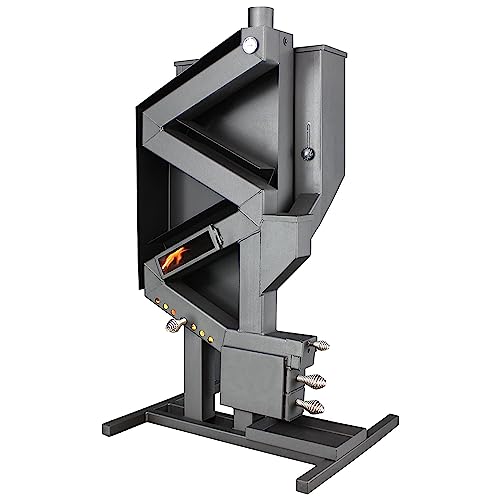What's The Current Job Market For Pellet Stoves For Rvs Professionals?
페이지 정보

본문
 Pellet Stoves For RVs Vs Wood Stoves
Pellet Stoves For RVs Vs Wood StovesRVs offer a cozy camping experience, but cold nights require a reliable heating source. Two popular options are pellet and wood stoves. stoves. Both have advantages, and the best pellet stove inserts one for you will depend on your requirements and preferences.
Pellet stoves are powered by biomass fuel made from sawdust and wood chips. They are extremely efficient, and they offer consistent heating. They are simple to use and do not emit harmful emissions.
Heating that is economical
pellet stoves dealers near me stoves are a great alternative to propane heaters. They are made from renewable biomass and have high combustion efficiency, which could save you money over the course of. They also use less electricity, reducing energy consumption and carbon footprints. Pellet stoves are small and can be used in conjunction with any standard propane tank. This makes them a great option for those looking to avoid the hassle of refilling and the storage of propane tanks.
The capacity of an oven to heat a large area is among its most significant features. A good stove will warm an entire motorhome or camper. The top pellet stoves for RVs can supply up to 8,000 BTUs of heat, enough to keep you warm and comfortable during your camping trip. Certain models come with thermostats that are programmed to automatically switch the stove on and off based on your schedule. They also notify you when the pellets are depleted or require cleaning.
Wood and pellet stoves are two very popular options for RVs and both provide excellent heating performance. They are also cost-effective and can be used in many different climates. Before you make a decision, you should know the distinctions between the two kinds of stoves.
Wood stoves require firewood which is collected with care and stored. This can pose a problem for those who travel in remote regions. In addition, wood can absorb moisture from the air, which can cause problems for your RV's interior. However, you can find a variety of wood-based fire logs for your RV stove from online retailers. These logs will save you a lot of time and effort, letting you concentrate on your travels instead of fueling.
Convenient cooking
Pellet stoves are great for campers who love to cook. These stoves are designed to extract the greatest amount of heat from the fuel, resulting in efficient energy use and low heating costs. They also have automatic pellet feeding systems and thermostatic controls to ensure constant temperature settings. In addition, you can use them as a back-up heating source in case of an emergency or power failure.
Wood stoves make for another popular option when camping in RVs. Wood stoves are an excellent alternative for boondocking, or camping without hookups. They require regular maintenance and regular cleaning to remove creosote and ashes. They also depend on firewood, which can be costly in remote areas and is difficult to locate. Moreover, they often require proper ventilation to stop the build-up of carbon monoxide and smoke within the camper.
Pellet stoves are more practical than wood stoves, offering the same heating performance and comfort while requiring significantly less maintenance. They are also less expensive than gas heaters, and they produce less ash and particulates. Pellet stoves are also a more environmentally friendly energy source than wood stoves.
Pellet stoves can be more practical than wood-burning stoves however, they still require power from an electrical source. Your stove will not function effectively if electricity is not working. This could result in an unsafe situation. It's a good idea to have an emergency generator or power-outage plan in place to ensure your safety and warmth. Most wood and pellet stoves come with batteries or manual ignition systems to avoid these problems.
Multi-faceted
Wood pellet stoves are a great option for RVs because they are cost-effective and efficient in heating, and provide a warm atmosphere. They can also be utilized as a backup in the event of an power failure. Some models come with a battery backup system that ensures that the stove is always in operation. Pellet stoves are also easy to use and require only minimal maintenance. However, it's important to remember that they do require proper installation and ventilation.
pellet stoves best stoves generate a fresh, odorless heat, unlike propane stoves, which emit gas and moisture. They are also easier to use than traditional wood stoves, and they produce more heat in a shorter amount of time. Besides offering heating they can also be used to cook food, turning your RV into fully functional kitchen. This is especially beneficial in remote areas and can help you save money on eating out.
In addition to being more economical They are also safer than electric and gas models. The pellet stoves also emit less smoke, reducing the risk of fires and indoor air pollution. Be aware that they require electricity to run their automatic ignition systems and pellet feed system. They may also require more frequent refills of pellets than gas stoves.
Before installing a wood stove in your RV, be aware of the limitations and factors. You'll also need to store the wood in a nearby location and ensure that the RV has enough storage space for the stove hopper. Wood stoves can also cause ceilings and walls to blister or warp. Consider a stove that has an insulation layer or a surface-protection kit.
Compact
Pellet stoves are compact and easy to operate. They are ideal for RVs due to their a powerful output and a reliable combustion process. They also provide heat in a uniform way that ensures an enjoyable camping experience. You can easily control the amount of heat you wish to produce and keep a consistent temperature. The SoloWilder Camping Pellet Stove, for instance, has a sturdy design and a highly efficient heating system which makes it a fantastic choice for campers.
The pellets are inserted into the fuel hopper, and later are fed into the burner pot with an auger. The pellets are typically made from compressed sawdust and wood byproducts, however some stoves will accept other biomass like corn kernels or nutshells. The fuel is dense, which makes it burn more hot and cleaner which reduces smoke and waste emissions. These stoves are high-energy efficient with energy efficiency of 70 to 83%.
Most pellet stoves are easy to maintain and easier to operate and lighter than traditional wood stoves. However, they can be noisy and require a dry, cool location to store the pellets. They're also powered by electricity and require power (not suitable for camping off-grid). If you are considering a stove that burns pellets, make sure you choose one that has an energy-efficiency certificate.
Pellet stoves are more expensive and require more storage space than traditional wood-burning fire places. The pellet bags are costly and can use up a bag of 40 pounds every day. In addition they require electricity, and could drain your backup battery.
Safety
Pellet stoves are an easy way to heat your RV and enjoy the fire crackling without having to transport and store firewood. They produce less smoke and ash and are more easy to light than wood stoves. They also provide a warm and comfortable atmosphere. It's important to know the risks to health that come with using a pellet wood stove. For those with respiratory issues as well as older adults and children should be extra cautious before using a pellet stove.
The majority of models come with an electronic control system that automatically feeds pellets to the combustion chamber. This lets them burn at a desired rate. These stoves are also equipped with a thermostat that can be programmed to maintain the desired heating level. They also have an automatic cleaning system that suctions up the accumulated clinker or ashes.
However, despite these modern features, a pellet stove still requires electricity and ventilation to function. It might not function during a power loss. In these scenarios it's essential to have a backup plan to meet your heating needs, such as investing in a generator.
Another issue with pellet stoves is that they employ the process of combustion that releases toxins into the air, such as carbon monoxide. This is a major concern for people with chronic respiratory conditions, such as COPD or asthma. Carbon monoxide detectors are vital for homes. They should be located near bedrooms, on each floor of the home and tested on a regular basis.
 Pellet stoves are a great option for camping, particularly when you reside in a region that experiences harsh winters. They are simple to operate and are affordable however, they require electricity to operate. If you are planning to camp off-grid it is important to ensure that you have enough wood to power your stove.
Pellet stoves are a great option for camping, particularly when you reside in a region that experiences harsh winters. They are simple to operate and are affordable however, they require electricity to operate. If you are planning to camp off-grid it is important to ensure that you have enough wood to power your stove.- 이전글15 Funny People Who Are Secretly Working In Private ADHD Assessment Leicester 24.11.13
- 다음글It's Time To Upgrade Your Attorneys For Asbestos Exposure Options 24.11.13
댓글목록
등록된 댓글이 없습니다.